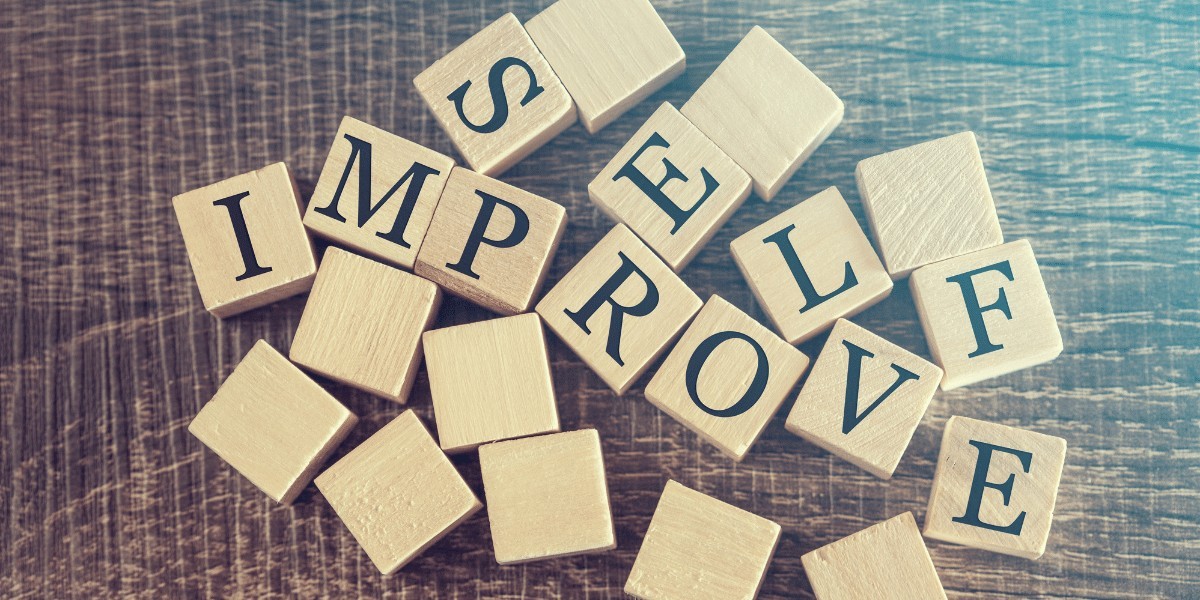mbarking on the journey of self-improvement is a profound commitment to personal growth and development. In a world where constant change is the norm, dedicating time and effort to enhance oneself mentally, emotionally, and physically is not just beneficial but necessary for leading a fulfilling life. In this article, we will explore various strategies and techniques to effectively work on self-improvement.
Setting Goals for Self-Improvement
Before diving into the process of self-improvement, it's crucial to identify specific areas in which you'd like to grow and develop. Whether it's improving your communication skills, becoming more organized, or adopting healthier habits, setting clear and achievable goals is the first step towards progress. Utilizing the SMART criteria—specific, measurable, achievable, relevant, and time-bound—can help ensure that your goals are well-defined and actionable.
Developing Positive Habits
Habits play a significant role in shaping our daily lives and ultimately our future. By cultivating positive habits, we can streamline our routines and make progress towards our goals more effectively. Start by identifying habits that align with your values and aspirations, then implement strategies such as habit stacking, setting up triggers, and tracking progress to make them stick.
Self-Reflection and Awareness
Self-awareness is the cornerstone of self-improvement. By taking the time to reflect on our thoughts, emotions, and behaviors, we gain valuable insights into our strengths, weaknesses, and areas for growth. Techniques such as journaling, meditation, and mindfulness exercises can help enhance self-awareness and facilitate personal development.
Learning and Growth
Embracing a mindset of continuous learning is essential for ongoing growth and development. Whether it's acquiring new skills, pursuing further education, or seeking out challenging experiences, every opportunity for learning presents a chance to expand our knowledge and capabilities. Additionally, actively seeking feedback and constructive criticism from others can provide valuable insights and accelerate our progress.
Time Management
Effective time management is critical for maximizing productivity and achieving our goals. By prioritizing tasks, setting deadlines, and avoiding distractions, we can make the most of our time and stay focused on what matters most. Techniques such as the Pomodoro Technique, time blocking, and using productivity tools can help improve time management skills and increase efficiency.
Mindfulness and Mental Health
In today's fast-paced world, it's easy to get caught up in the hustle and bustle of daily life. Practicing mindfulness—being fully present in the moment—can help reduce stress, improve concentration, and enhance overall well-being. Incorporating mindfulness exercises such as deep breathing, meditation, and body scans into your daily routine can promote mental clarity and emotional resilience.
Building Resilience
Resilience is the ability to bounce back from adversity and overcome challenges with strength and determination. Cultivating resilience involves developing coping strategies, fostering a positive mindset, and reframing setbacks as opportunities for growth. By embracing adversity as a natural part of the human experience, we can build resilience and emerge stronger than ever before.
Healthy Lifestyle Choices
Physical health is a fundamental aspect of self-improvement. Prioritizing healthy lifestyle choices such as regular exercise, balanced nutrition, and adequate sleep not only improves our physical well-being but also enhances our mental and emotional resilience. By nurturing our bodies, we can increase energy levels, boost mood, and optimize overall performance.
Developing Emotional Intelligence
Emotional intelligence—the ability to recognize, understand, and manage our own emotions as well as those of others—is a key component of effective communication and interpersonal relationships. By developing emotional intelligence skills such as empathy, self-regulation, and social awareness, we can navigate social situations more effectively and build deeper connections with others.
Self-Care Practices
Self-care is essential for maintaining balance and preventing burnout in our fast-paced lives. Whether it's indulging in a hobby, spending time in nature, or practicing relaxation techniques, incorporating self-care activities into our daily routine is vital for replenishing our physical, mental, and emotional reserves. Remember, self-care is not selfish—it's necessary for overall well-being.
Seeking Support and Accountability
Embarking on the journey of self-improvement can be challenging, but you don't have to go it alone. Surround yourself with a supportive network of friends, family, or mentors who can offer encouragement, guidance, and perspective along the way. Additionally, finding an accountability partner or joining a group with similar goals can help keep you motivated and accountable for your progress.
Overcoming Self-Doubt
Self-doubt is a common obstacle on the path to self-improvement, but it doesn't have to hold you back. By challenging limiting beliefs, practicing self-compassion, and focusing on your strengths, you can boost self-confidence and overcome self-doubt. Remember, everyone experiences setbacks and doubts from time to time—it's how you respond to them that matters most.
Celebrating Progress and Milestones
As you progress on your journey of self-improvement, take the time to celebrate your achievements and milestones along the way. Whether it's reaching a goal, overcoming a challenge, or simply making progress towards becoming the best version of yourself, each step forward is worthy of recognition and celebration. By acknowledging your accomplishments, you reinforce positive behaviors and fuel your motivation to keep moving forward.
Conclusion
Self-improvement is not a destination but a lifelong journey of growth and discovery. By setting goals, cultivating positive habits, and prioritizing self-care, you can unlock your full potential and create a life of purpose, fulfillment, and happiness. Remember, the journey may be challenging at times, but the rewards are well worth the effort. So embrace the process, stay committed to your goals, and watch yourself transform into the best version of yourself.
FAQs (Frequently Asked Questions)
What is self-improvement, and why is it important?
- Self-improvement refers to the process of enhancing one's skills, qualities, and abilities to achieve personal goals and fulfill one's potential. It's important because it allows us to grow, learn, and adapt to the ever-changing demands of life, leading to greater happiness and success.
How can I identify areas for self-improvement?
- Start by reflecting on your strengths, weaknesses, and areas where you'd like to see growth. Consider seeking feedback from others or using self-assessment tools to gain insight into areas that could benefit from improvement.
What are some common obstacles to self-improvement, and how can I overcome them?
- Common obstacles to self-improvement include self-doubt, fear of failure, and lack of motivation. To overcome these obstacles, focus on building self-confidence, setting realistic goals, and seeking support from others.
How long does it take to see results from self-improvement efforts?
- The timeline for seeing results from self-improvement efforts varies depending on the individual and the nature of the goals. Some changes may be immediate, while others may take weeks, months, or even years to fully manifest. The key is to stay patient, persistent, and consistent in your efforts.
What should I do if I feel overwhelmed or discouraged during my self-improvement journey?
- It's normal to experience moments of overwhelm or discouragement on the path to self-improvement. During these times, take a step back, reassess your goals, and practice self-compassion. Remember that setbacks are a natural part of the process, and every challenge is an opportunity for growth and learning.
You Can Also Read: 25 Tips for Self-Improvement








